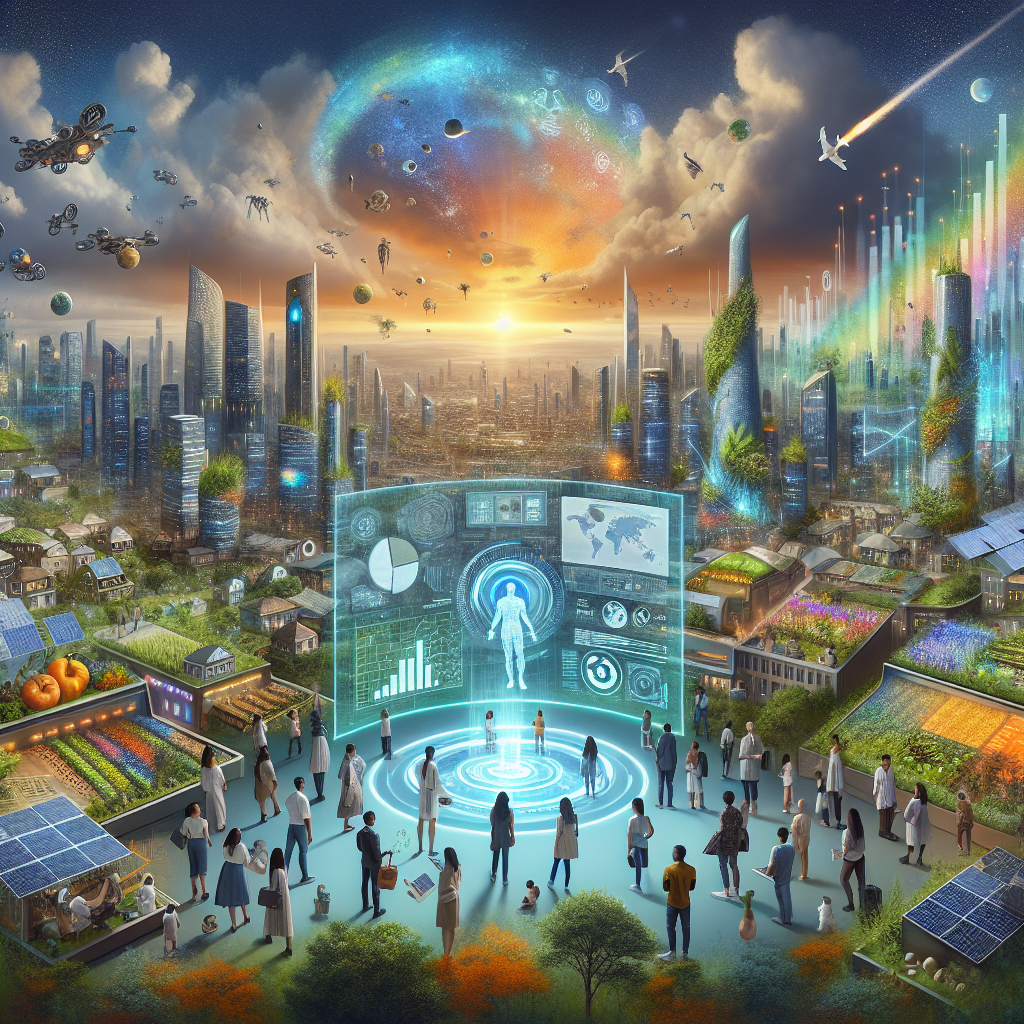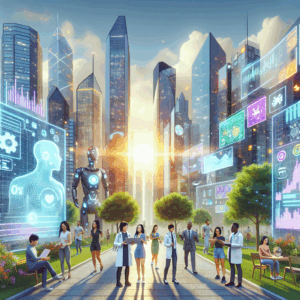AI Technology’s Role in Modern Challenges
Introduction
Artificial Intelligence (AI) represents a cornerstone of modern technological advancement, transforming industries and reshaping our daily lives. As societies around the globe confront numerous challenges, from climate change to economic disparities, AI emerges as a pivotal tool in providing innovative solutions. The purpose of this blog post is to explore how AI technology addresses some of these pressing issues and to emphasize the importance of developing AI responsibly and ethically.
Defining AI Technology
AI technology encapsulates the simulation of human intelligence by machines, especially computer systems. It encompasses learning, reasoning, and self-correction, primarily through machine learning algorithms and neural networks. These components empower machines to perform tasks traditionally requiring human intelligence, such as visual perception, speech recognition, decision-making, and language translation.
Initially confined to theoretical discussions, AI has evolved into practical applications that significantly impact various industries. Understanding AI’s capabilities and limitations is crucial in maximizing its benefits while minimizing potential adverse effects. As with any powerful tool, responsible usage is essential to ensure AI contributes positively to society.
Climate Change Challenges and AI Solutions
Climate change stands out as one of the most pressing global challenges. Rising temperatures, extreme weather events, and sea-level rise pose significant threats to ecosystems and economies worldwide. AI contributes innovative solutions to combat these issues.
AI-driven climate models and prediction systems improve our understanding of climate patterns, enabling more accurate forecasts and informed decision-making. Additionally, AI enhances energy efficiency by optimizing power grid operations and reducing emissions. Initiatives such as Google’s DeepMind using AI to reduce data center energy consumption by 40% exemplify successful applications in environmental conservation.
Case studies like these highlight AI’s potential in developing sustainable practices and technologies necessary for mitigating climate change effects.
AI in Healthcare
The healthcare sector faces immense challenges, including access, quality, and cost of medical services. AI is revolutionizing healthcare by offering groundbreaking solutions in diagnostics and personalized medicine.
AI’s capabilities in image recognition, for instance, facilitate faster and more accurate analysis in radiology, boosting diagnosis efficiency. Personalized treatment plans powered by AI analyze patient data to recommend optimal care paths, enhancing treatment efficacy. Despite these benefits, the integration of AI in healthcare brings ethical considerations, such as data privacy and potential biases in AI algorithms, which must be diligently addressed.
Privacy and Security Concerns
The digital age has ushered in significant privacy challenges, as personal data is increasingly vulnerable to breaches. AI plays a pivotal role in strengthening cybersecurity measures. Machine learning algorithms detect and respond to threats swiftly, protecting sensitive information.
However, AI’s potential in surveillance and data mining raises privacy concerns, necessitating a careful balance between technological advancement and individual privacy rights. Ensuring AI innovations do not compromise privacy requires robust policies and ethical standards.
Economic Inequality and Workforce Disruption
AI’s transformative nature inherently disrupts traditional workforce structures, leading to concerns about job displacement and economic inequality. While AI automates repetitive tasks, reducing manual labor needs, it simultaneously creates opportunities in the AI sector, such as developing and maintaining AI systems.
Policymakers must implement strategies to ensure equitable access to AI technologies and facilitate workforce reskilling and upskilling. Preparing the workforce for an AI-driven economy is vital to harnessing AI’s full potential while minimizing negative impacts on employment.
Conclusion
AI technology harbors transformative potential in addressing modern challenges. Its applications in climate change, healthcare, security, and economic reform illustrate AI’s impactful role in fostering a sustainable future. Moving forward, the responsible development and use of AI technologies are imperative to ensure these solutions benefit society at large without compromising ethical standards. Encouraging engagement and advocacy for ethical AI practices will guide humanity on a path toward a balanced technological future.





